- Home
- About WVN
-
WVN Issues
- Vol. 1 No. 1 (Oct. 2017) >
- Vol. 2 No. 1 (Feb. 2018) >
- Vol. 2 No. 2 (Jun. 2018) >
- Vol. 2 No. 3 (Oct. 2018) >
- Vol. 3 No. 1 (Feb. 2019) >
- Vol. 3 No. 2 (Jun. 2019) >
- Vol. 3 No. 3 (Oct. 2019) >
- Vol. 4 No. 1 (Feb. 2020) >
- Vol. 4 No. 2 (Jun. 2020) >
- Vol. 4 No. 3 (Oct. 2020) >
- Vol. 5 No. 1 (Feb. 2021) >
- Vol. 5 No. 2 (Jun. 2021) >
- Vol. 5 No. 3 (Oct. 2021) >
- Vol. 6 No. 1 (Feb. 2022) >
- Vol. 6 No. 2 (Jun. 2022) >
- Vol. 6 No. 3 (Oct. 2022) >
- Vol. 7 No. 1 (Feb. 2023) >
- Vol. 7 No. 2 (Jun. 2023) >
- Vol. 7 No. 3 (Oct. 2023) >
- Vol. 8 No. 1 (Feb. 2024) >
-
Events
- CIES 2023, Feb. 14-22, Washington D.C., USA
- ICES 4th National Conference, Tel Aviv University, Israel, 20 June 2021
- 2022 Virtual Conference of CESHK, 18-19 March 2022
- ISCEST Nigeria 7th Annual International Conference, 30 Nov.-3 Dec. 2020
- 3rd WCCES Symposium (Virtually through Zoom) 25-27 Nov. 2020
- CESA 12th Biennial Conference, Kathmandu, Nepal, 26-28 Sept. 2020
- CESI 10th International Conference, New Delhi, India, 9-11 Dec. 2019
- SOMEC Forum, Mexico City, 13 Nov. 2018
- WCCES Symposium, Geneva, 14-15 Jan. 2019
- 54th EC Meeting, Geneva, Switzerland, 14 Jan. 2019
- XVII World Congress of Comparative Education Societies, Cancún, Mexico, 20-24 May 2019
- ISCEST Nigeria 5th Annual Conference, 3-6 Dec. 2018
- CESI 9th International Conference, Vadodara, India, 14-16 Dec. 2018
- ICES 3rd National Conference, Ben-Gurion University, Israel, 17 Jan. 2019
- WCCES Retreat & EC Meeting, Johannesburg, 20-21 June 2018
- WCCES Symposium, Johannesburg, 21-22 June 2018
- 5th IOCES International Conference, 21-22 June 2018
- International Research Symposium, Sonepat, India, 11-12 Dec. 2017
- WCCES Info Session & Launch of Online Course on Practicing Nonviolence at CIES, 29 March 2018
- WCCES Leadership Meeting at CIES, 28 March 2018
- 52nd EC Meeting of WCCES, France, 10-11 Oct. 2017
- UIA Round Table Asia Pacific, Chiang Mai, Thailand, 21-22 Sept. 2017
- Online Courses
|
Southern African Comparative and History of Education Society (SACHES) has received the devastating news that its Third President, inspiration and legend, Professor Sheldon Weeks had passed away. He was a true Comparative and International Education scholar, having lectured at a university on every continent. His involvement with African education can be divided into four parts. It commenced in the early 1950s, when Sheldon Weeks was an undergraduate student at Swarthmore College outside Philadelphia in Pennsylvania. Here he was exposed first-hand to issues of development in Africa by students from different parts of the continent. During his second year of study at Swarthmore, in 1950, he became acquainted with three Nigerian students who were accepted and who came with British Commonwealth Scholarships. They eventually became close friends (Weeks, 2005: 3-4). During his Swarthmore years he also got to know a Namibian and Kenyans who made it to Swarthmore College. He obtained a B.A. degree from Swarthmore in 1954. In 1959-1960 Weeks completed a Masters Degree in Education at the Putney Graduate School of Teacher Education in Vermont (now part of Antioch, New England). From there he went to Harvard University where he eventually completed a Doctorate in Education in 1968. The second period of Sheldon Weeks’ involvement with African education was the twelve years 1962-1974, when he lived, worked and travelled in Africa. First he was a research associate at the East African Institute of Social Research, at Makerere University, Uganda. In order to be more than a researcher, he also taught two courses to the Form Three Class at the nearby Lubiri Secondary School. Later he became Associate Professor of Sociology at the newly founded University of Dar es Salaam. Long before these topics were fashionable as research foci he published about employment in the informal sector (Weeks, 1974) and university students’ evaluation of courses (Weeks, 1973). This phase of his life was interrupted by a sojourn in Oceania, when he relocated to Papua New Guinea to be foundation Professor and Director of Educational Research at the newly founded University of Papua New Guinea. He was based in Papua New Guinea for seventeen years, 1974 to 1991. During this time, he kept up a connection with Africa. He began his seventeen years in Oceania with an investigation as to how research centers were organized in Africa, with a trip to Sierra Leone, Ghana, Nigeria, Uganda, Kenya and Tanzania. He was instrumental in getting some of his University of Dar es Salaam faculty to teach as visiting faculty at the University of Papua New Guinea. Many of the research themes he pursued in Papua New Guinea were very relevant to the African context too. These included Community Schools, Non-Formal Education (Weeks, Crossley & Sukwianomb, 1987; Weeks & Abai, 1991), Distance Vocational Education and Training, Teacher Education (Weeks & Smith, 1981), Adopted Secondary Schools, Educational Innovations, Primary School Leavers (Weeks, 1975), Vernacular Preschools, School-Based Curriculum Development, Educational Planning (Weeks, 1978), Decentralization, National Youth Service Schemes and Education (Weeks, 1976), the North Solomons Educational Research Project (Weeks & Abai, eds, 1992), and the Oro Research Project. Over the seventeen years that he was at the University of Papua New Guinea, he and his colleagues raised at least one million US dollars to support educational research in Papua New Guinea. In 1991 Weeks returned to Africa, as an Associate Professor and Director, Graduate Studies and Research in Education at the University of Botswana. He served in that position until April 1996, when he became Foundation Dean of Graduate Studies at the University of Botswana.. On his time in Botswana he commented: “These have been exciting years, with many levels of involvement, both within and outside Botswana… It feels like I have not looked back since then” (Weeks, 1995: 20). His first external request from outside Botswana was to assist as a consultant to the Royal Embassy of the Netherlands in Pretoria with an evaluation. That was followed by a series of positions as External Examiner at the University of Zimbabwe, the University of Swaziland, and the University of Dar Es Salaam. After retiring from the University he remained in Gaborone till a few years before his passing away, before returning to the United States of America for his last years. Professor Weeks came to Botswana just in time for the founding of a regional Comparative Education society, the Southern African Comparative and History of Education Society (SACHES). In the global family of Comparative Education Societies SAHCES is an interesting case (cf. Weeks, Herman, Maarman & Wolhuter, 2006; Soudien, 2007; Wolhuter & Nyatuka, 2022). This Society was formed in 1991, the initiative being taken by Professor Harold Herman (who also was the Founding President of the Organisation) at the behest of and with the help of Dr Erwin Epstein (who at that stage was President of the World Council of Comparative Education Societies), who was well acquainted with Prof Herman, and in the run-up to the formation of SACHES, spent a spell as Visiting Professor at the Department of Comparative Education at the University of the Western Cape, where prof. Herman was located). One of the first challenges was to become a constituent member of the World Council of Comparative Education Societies (WCCES). Professor Weeks went to the World Conference of Comparative Education in Prague in 1992, to help presenting SACHES’ case for admission. Here he and Prof Herman had to contend with strong opposition from other member Societies, who were ignorant of the education and socio-political situation and changes in South Africa. An idea of the difficulties SACHES faced in securing admission to the WCCES can be gleaned from Crain Soudien’s (SACHES member who later became WCCES President) preface to the Festschrift in honour of David Wilson (Soudien, 2010: ix). The formation of SACHES and the challenges it faced at the time can be understood within the context of the international academic boycott which South Africa was just emerging from at the time. An international academic boycott was waged for three decades (1960-1990) against South African academia, as part of the international protest against the segregation policies of the South African government. Harricombe and Lancaster (1995: 30) note that this boycott included the following: a refusal of international scholars to travel to South Africa or to invite South Africans abroad; a refusal to publish South African manuscripts internationally; a refusal of international scholars to collaborate with South African scholars; a refusal by some publishers to provide access to information (e.g. books, software); a denial of South African participation at international conferences; a denial of access to South African academics by certain institutions abroad; and a refusal to act as external examiners for theses at South African universities. (For a survey of the full extent and intensity of this academic boycott, the interested reader is referred to the publication of Harricombe and Lancaster, 1995) Hence another strong motivation for the formation of SACHES was the burning desire for scholars and instructors of Comparative and International Education and of History of Education to connect with their colleagues in neighbouring countries. In this drive Professor Weeks made his contribution too. The inaugural conference of SACHES was in 1991 in Katberg in the Eastern Cape Province of South Africa. Professor Weeks first attended the second conference, held in Broederstroom near Johannesburg, South Africa, in October 1992. The third conference, held at the Cuttey Sark Hotel, Scottburgh, on the Eastern seaboard of South Africa, was also attended by Professor Weeks. Then the moment arrived to have SACHES conferences outside South Africa. The next conference, Professor Weeks hosted at the Oasis Hotel on the outskirts of Gaborone, Botswana, in 1994. Professor Weeks was the Third President of SACHES, 1999 to 2003. He was also instrumental in the founding of the SACHES journal Southern African Review of Education in 1995, its incorporation of the journal Education with Production, and it becoming a peer-reviewed journal in 1998. SACHES came to host the Tenth World Conference of Comparative Education in Cape Town in 1998, the first (and up to now the only) time the World Conference of Comparative Education was hosted on African soil. The conference drew over 800 delegates, more than twice the number of delegates based on attendance of previous Comparative Education World Conferences. The conclusion of the Conference also saw SACHES unexpectedly having a profit. Reputedly this was the first time that happened with respect to a Comparative Education World Conference. This profit was invested, the proceedings used to fund research projects by SACHES members, and is also up to this point in time being used to fund the SACHES journal Southern African Review of Education. After stepping down as SACHES President, he remained on the executive, where he contributed a valuable service. When we had our quarterly meetings in Pretoria during the early 2000s, he made the 375 miles/600 kilometre journey by car every time. Despite not having any institutional funding base after retirement, he continued to religiously attend every annual SACHES conference, right up to the 2012 Conference in Stellenbosch, South Africa. Weeks was not a trained scholar of Comparative and International Education. For his junior degree he majored in Psychology. Neither did he cut his teeth in academia in the field — his first appointment was in Sociology of Education. But he made his mark in Comparative and International Education. In David Wilson’s brilliant explication of the genealogy of the field in his 1994 Comparative and International Education Society’ (CIES) Presidential Address, Sheldon Weeks is the only comparativist located in Africa to be named (Wilson, 1994). Weeks’ contribution to Comparative and International Research and literature did not cease with his retirement. Later publications include research on education and national development in South Africa (Weeks & Marope, 1996) The first post-independence President of Tanzania, Julius Nyerere once said “The British Empire left us a country with 85% illiteracy, two engineers and twelve doctors…..When I left office we had 9% illiteracy” (Legum, 2005: 17). During the first two decades after independence Tanzania had made its mark in the education theatre of Africa and of the world. Arnove (1982: 433) states that in the world history of adult literacy campaigns three stand out as remarkable. These are the Cuban Literacy Campaign of 1961, the Nicaraguan Literacy Campaign of 1980, and the Adult Literacy Campaign in Tanzania in the 1970s. A second noteworthy education initiative of post-independence Tanzania was when the government decided in 1974 to achieve universal primary school education within three years, i.e. in 1977. That required a massive increase in the supply of teachers, in a short time; something the conventional modes of teacher training could not do. Thus Tanzania decided in 1974 to train primary school teachers using an ingenious mode, fit for the context. The success of this remarkable exercise spurred Zimbabwe to introduce the Zimbabwe Integrated National Teacher Education Course (ZINTEC) scheme, which was modeled on the Tanzanian one, in the years immediately after the attainment of independence in 1980. The particular context of Zimbabwe at that time was namely that at the end of a devastating civil war and the advent of independence, primary school enrolments doubled in one year, from 1.2 million in 1980 to 2.4 million in 1981. In order to find a supply of primary school teachers the Education Ministry of Zimbabwe turned to the Tanzanian model. These initiatives of unconventional teacher education , in Tanzania and Zimbabwe received praise in international Comparative Education literature (see Coombs, 1985: 220; Bray et al., 1986: 163-165; World Bank, 1988: 4; Lockheed, Verspoor and Associates, 1991: 93). Secondary school graduates were recruited and put through a six week residential course at a teachers training college, followed by a combination of supervised (under qualified teachers) primary school teaching, a correspondence-cum radio course, and a final examination after three years. In what is probably a unique occurrence for a head of state, Tanzanian State President J.K. Nyerere could publish an article of Tanzania’s post-independence education achievements in a top academic journal Harvard Educational Review (Nyerere, 1985). The authors of this obituary want to believe there is a connection between the post-independence education achievements of post-independence Tanzania and the scholarly underpinnings of those located at, or scholarly guidance of these emanating from the Hill, as the University of Dar Es Salaam is colloquially known in that city. Sheldon Weeks was one of the pioneers and leading figures on the Hill in those years. Sheldon Griswold Weeks was born on 18 November 1931 in Manhattan New York, and died peacefully at home on 4 May 2022 in Brattleboro Vermont at the age of 90. He was a humanitarian, educator, researcher, author, peace activist, conscientious objector, Quaker, beloved father, grandfather, great grandfather, and husband. He lived with a passion for world travel, nature, the arts, and was a voracious reader and movie watcher. He enjoyed hiking, scuba diving, kayaking, camping, going on safari, visiting galleries and museums, attending music events and theater performances, and often had a hat on his head and a camera in his hand. He is predeceased by his parents Harold Weeks and Virginia Travell, sister Virginia Weeks, brother Willard Weeks, wives Sally Shoop, Mary Kironde, and Gudrun Schulz. He is survived by his sister Elinor Weeks, children Sara, Abigail, Harold, Edisa, and Kristina Weeks, two stepchildren, one unofficially adopted child, fourteen grandchildren, and six great-grandchildren. A Memorial Service for him will take place on August 20th 2022, 2:00 to 3:30 pm at the Putney Friends Meeting House, 17 Bellows Falls Rd, Putney, Vermont. There will be the option to participate via zoom from afar. A preacher of peace — he always ended his emails with “Yours in Peace”, his presence unfailingly brought an atmosphere and feeling of serenity, he will be missed by SACHES. May his memory be a blessing to the global Comparative and International Education community. References Arnove, R.F. 1982. The Nicaraguan National Literacy Crusade 1980. In: P.G. Altbach, R.F. Arnove & G.P. Kelly (eds). Comparative Education. New York: Macmillan. Bray, M.; Clarke, P.B. & Stephens, D. 1986. Education and Society in Africa. London: Edward Arnold. Coombs, P.H. 1985. The World Crisis in Education: The view from the eighties. New York: Oxford University Press. Harricombe RJ & Lancaster FW 1995. Out in the Cold: Academic boycotts and the isolation of South Africa. Arlington: Information Resources Press. Legum, M. 2005. The Millennium Development Goals: Meeting. Weekly Mail & Guardian 9-15 September 2005: 17. Lockheed, M.E.; Verspoor, A.M. & Associates. 1991. Improving Primary Education Programmes: in Developing Countries. Washington DC, World Bank. Nyerere, J.K. 1985. Education in Tanzania. Harvard Educational Review 55. Soudien, C. 2007. The Southern African Comparative and History of Education Society. In: Masemann, V., Bray, M. & Manzon, M. (eds). Common Interests, Uncommon Goals: Histories of the World Council of Comparative Education Societies and its Members. Dordrecht & Hong Kong: Springer and the Comparative Education Research Centre, University of Hong Kong: 284-292. Soudien, C. 2010. Preface. In: V. Masemann, S. Majhanovich, N. Throng & K. Janigan (eds). A Tribute to David N. Wilson: Clamouring for a better world. Rotterdam: Sense. Weeks, S.G. 1973. Student Evaluation of Courses. Dar Es Salaam, Sociology Department, Occasional Papers, April. 1973. Weeks, S.G. 1974. “Where are all the jobs? The Informal Sector in Bugisu. African Review 3(1): 111-132. Weeks, S.G. 1975. The Problem of Primary School Leavers in a Developing Country. ERU Occasional Papers, no. 1. Weeks, S.G. 1976. National Service and Community Involvement as Seen by Tertiary Students. ERU Report, 21 October 1976. Weeks, S.G. (ed.). 1978. The “Foster Fallacy” in Education Planning. ERU Occasional Paper. Weeks, S.G. 2005. 55 Years of my African Education. In: C.C. Wolhuter (ed.). Access, Participation and Democratization in African Education (Proceedings of the 2005 Annual Conference of the Southern African Comparative and History of Education Society, SACHES, the University of Dar Es Salaam, 16-19 September 2005, Dar Es Salaam, Tanzania). Potchefstroom: CC Wolhuter: 1-24. Weeks, S.G. & Abai, N. 1991. Non-Formal Education in Papua New Guinea. DER Report, National Research Institute, Port Moresby. Weeks, S.G. & Abai, N. (eds). 1992. Education and Reconstruction in North Solomons Province. DER Special Report No 7. National Research Institute, Port Moresby. Weeks, S.G. & Marope, (eds). P.T.M. 1996. Education and National Development in Southern Africa. Gaborone: Botswana Education Research Association (BERA) and Southern African Comparative and History of Education Society (SACHES). Weeks, S.G. & Smith, P. 1981. Teachers and Teaching. Port Moresby: University of Papua New Guinea, Faculty of Education. Weeks, S.G., Crossley, M. & Sukwianomb, J. (eds). 1987. Pacific Perspectives on Non-Formal Education. Port Moresby: SUVA, Institute for Pacific Studies, University of Papua New Guinea. Weeks, S.G., Herman, H., Maarman, R. & Wolhuter, C. 2006. SACHES and Comparative, International and Development Education in Southern Africa: The challenges and future prosepcts, Southern African Review of Education 12(2): 5-20. Wilson, D.N. 1994. Comparative and International Education: Fraternal or Siamese Twins: A preliminary genealogy of our twin fields. Comparative Education Review 38(4): 449–486. https://doi.org/10.1086/447271 Wolhuter, C.C. & Nyatuka, B. 2022. Southern African Comparative and History of Education Society (SACHES): Looking back, and forward after three decades. In: N.T. Assié-Lumumba (ed.). The World Council of Comparative Education Societies Series. Leiden: Brill. Forthcoming. World Bank. 1988. Education in Sub-Saharan Africa: Policies of adjustment, revitalization and expansion. Washington DC: The World Bank. Dzvimbo, P. 1992. Formulation and Implementation of Teacher Education Reforms in Zimbabwe (Paper presened at the Second Annual Conference of the Southern African Comparative and History of Education Society, Broederstroom, South Africa). His children has set up this website: https://sheldongweeks.weebly.com/, containing more information including what his children wrote about him. “Reminiscences of a career in Comparative and International Education and Africa, spanning over 55 years”. Professor Weeks sharing the story of his life in his Plenary Address at the Southern African Comparative and History of Education Society (SACHES) Conference at the University of Dar es Salaam, Tanzania, 16-19 September 2005.
0 Comments
Leave a Reply. |
AuthorsDr. CC Wolhuter & Dr. Harold D. Herman
Professor Emeritus: Comparative and International Education University of the Western-Cape South Africa ArchivesCategories |
- Home
- About WVN
-
WVN Issues
- Vol. 1 No. 1 (Oct. 2017) >
- Vol. 2 No. 1 (Feb. 2018) >
- Vol. 2 No. 2 (Jun. 2018) >
- Vol. 2 No. 3 (Oct. 2018) >
- Vol. 3 No. 1 (Feb. 2019) >
- Vol. 3 No. 2 (Jun. 2019) >
- Vol. 3 No. 3 (Oct. 2019) >
- Vol. 4 No. 1 (Feb. 2020) >
- Vol. 4 No. 2 (Jun. 2020) >
- Vol. 4 No. 3 (Oct. 2020) >
- Vol. 5 No. 1 (Feb. 2021) >
- Vol. 5 No. 2 (Jun. 2021) >
- Vol. 5 No. 3 (Oct. 2021) >
- Vol. 6 No. 1 (Feb. 2022) >
- Vol. 6 No. 2 (Jun. 2022) >
- Vol. 6 No. 3 (Oct. 2022) >
- Vol. 7 No. 1 (Feb. 2023) >
- Vol. 7 No. 2 (Jun. 2023) >
- Vol. 7 No. 3 (Oct. 2023) >
- Vol. 8 No. 1 (Feb. 2024) >
-
Events
- CIES 2023, Feb. 14-22, Washington D.C., USA
- ICES 4th National Conference, Tel Aviv University, Israel, 20 June 2021
- 2022 Virtual Conference of CESHK, 18-19 March 2022
- ISCEST Nigeria 7th Annual International Conference, 30 Nov.-3 Dec. 2020
- 3rd WCCES Symposium (Virtually through Zoom) 25-27 Nov. 2020
- CESA 12th Biennial Conference, Kathmandu, Nepal, 26-28 Sept. 2020
- CESI 10th International Conference, New Delhi, India, 9-11 Dec. 2019
- SOMEC Forum, Mexico City, 13 Nov. 2018
- WCCES Symposium, Geneva, 14-15 Jan. 2019
- 54th EC Meeting, Geneva, Switzerland, 14 Jan. 2019
- XVII World Congress of Comparative Education Societies, Cancún, Mexico, 20-24 May 2019
- ISCEST Nigeria 5th Annual Conference, 3-6 Dec. 2018
- CESI 9th International Conference, Vadodara, India, 14-16 Dec. 2018
- ICES 3rd National Conference, Ben-Gurion University, Israel, 17 Jan. 2019
- WCCES Retreat & EC Meeting, Johannesburg, 20-21 June 2018
- WCCES Symposium, Johannesburg, 21-22 June 2018
- 5th IOCES International Conference, 21-22 June 2018
- International Research Symposium, Sonepat, India, 11-12 Dec. 2017
- WCCES Info Session & Launch of Online Course on Practicing Nonviolence at CIES, 29 March 2018
- WCCES Leadership Meeting at CIES, 28 March 2018
- 52nd EC Meeting of WCCES, France, 10-11 Oct. 2017
- UIA Round Table Asia Pacific, Chiang Mai, Thailand, 21-22 Sept. 2017
- Online Courses
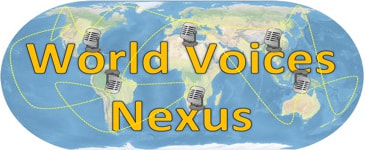
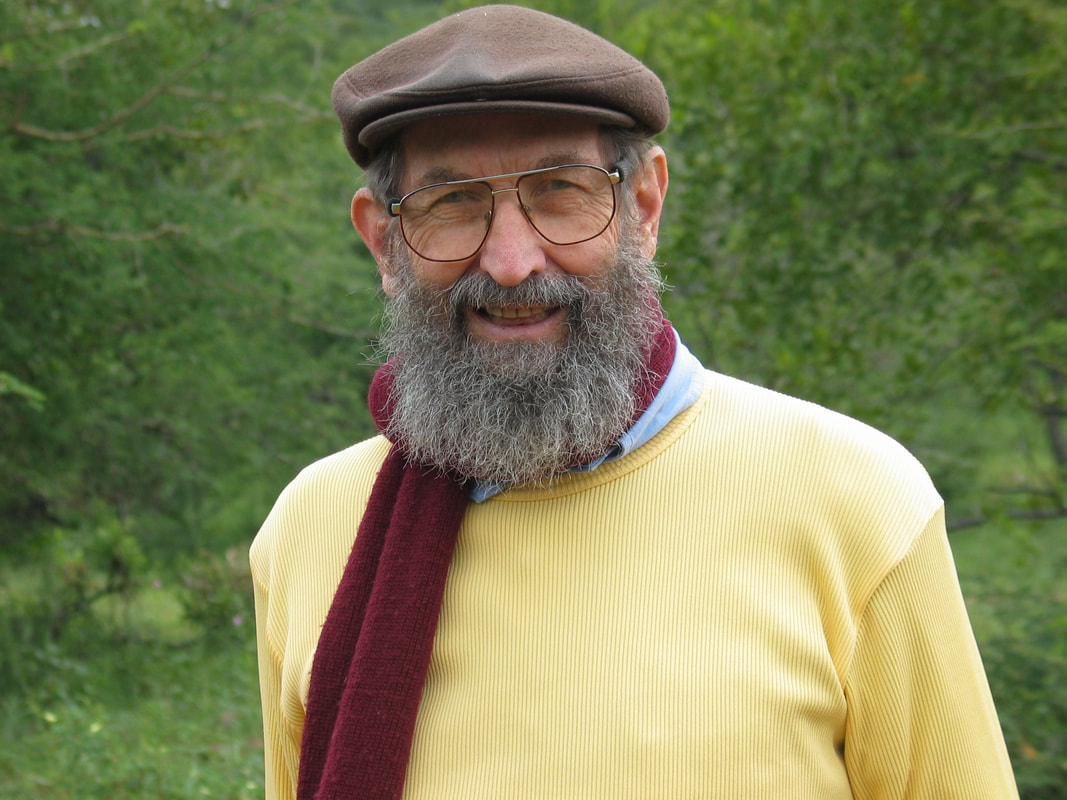
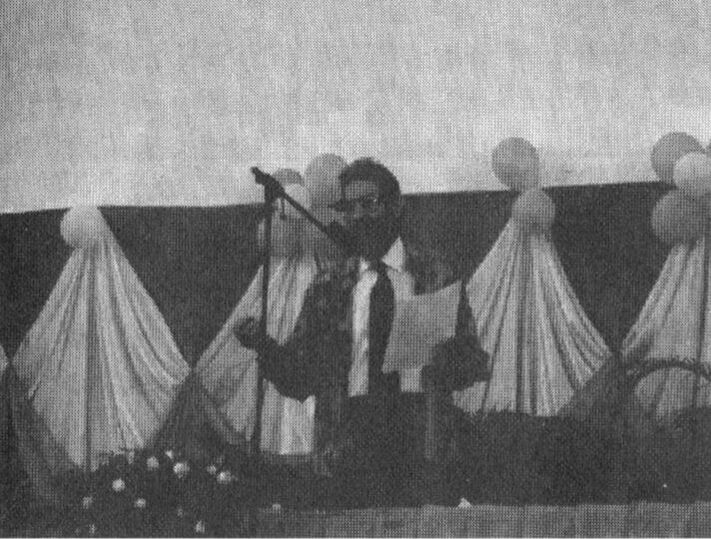
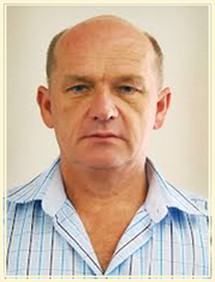
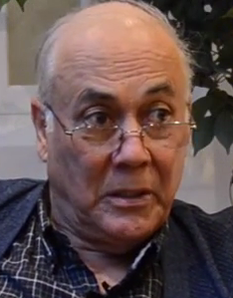
 RSS Feed
RSS Feed
